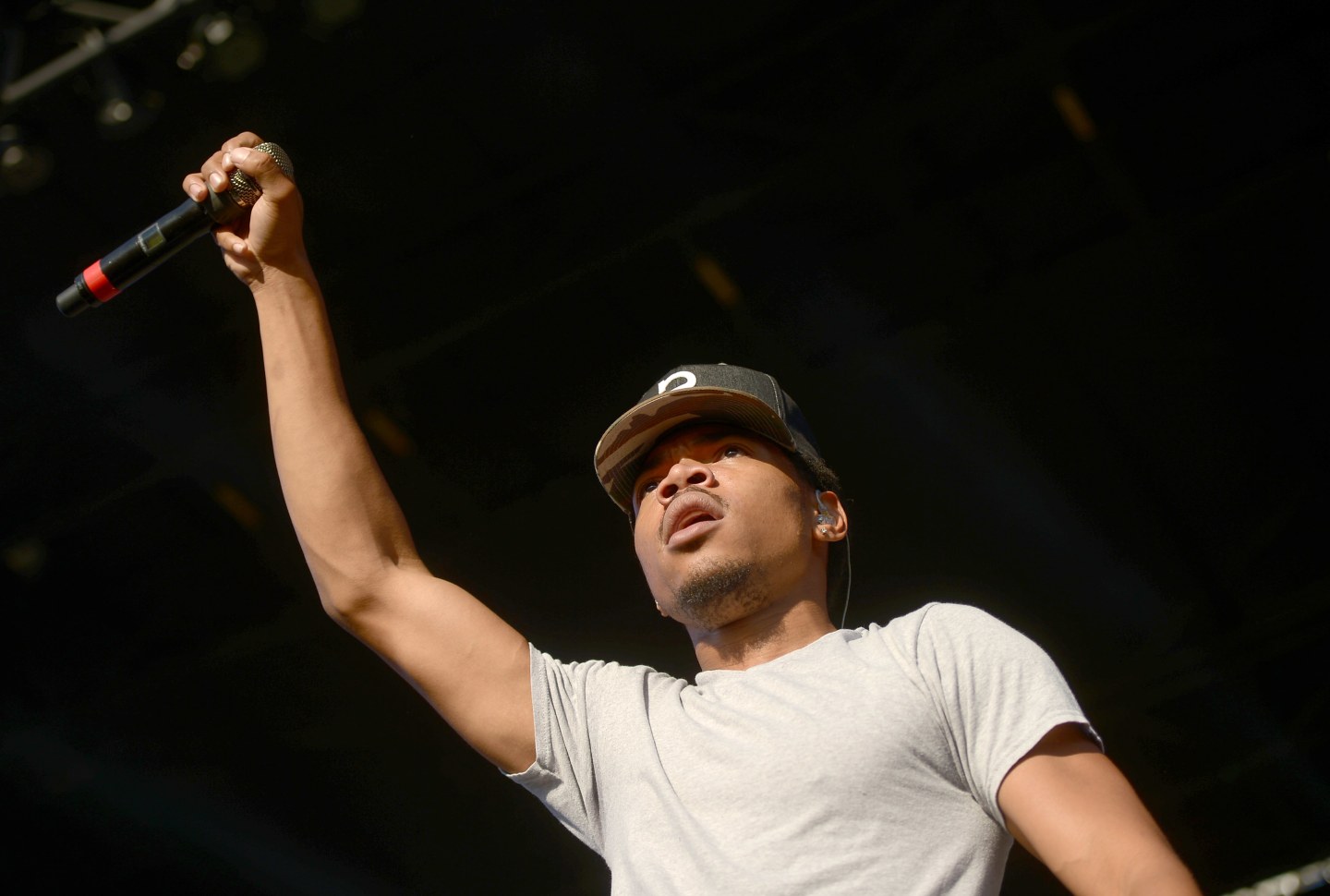 Michael Loccisano / Getty Images
Michael Loccisano / Getty Images
Depending on who you ask, Chance The Rapper’s quest for a Grammy is either hunger or thirst. He spent much of the past year campaigning for the Recording Academy’s favor — first by fighting a rule that precluded streaming-only music from eligibility, and then by literally asking for consideration via a full-page ad published in Billboard. It pictured Chance looking towards some unseen sky beyond the magazine’s borders, asking, “Hey, why not me?” The Academy claimed this fall that it had already been contemplating changes that would allow free projects like Chance’s Coloring Book to be considered, but his hustling ultimately worked. This morning, Chance was nominated for seven Grammys: the nods were for his own releases, his collaboration with Kanye West on “Ultralight Beam,” and for the major category Best New Artist. (If Chance being considered a “new artist” makes no sense, it’s because the award is one of the many Grammy categories with confusing eligibility rules.)
But for an artist who embodies freedom from music business strictures — he’s made public his refusal to sign to a label, insisted on putting out music without “selling” it, and generally criticized industry status quo — the energy Chance has channelled towards the Grammys strikes as a surprisingly traditional ambition. Like other creative-industry awards, the Grammys have long been criticized for their unfair biases, their over-reliance on the political machinations of the music business, and their mandate to measure accomplishments in ways that reward commercial success over base creativity. Just ask Kanye West. Or consider Frank Ocean, himself a #newrules kind of guy, who did not submit his two 2016 projects for Grammy consideration. He explained the decision to the New York Times: “I think the infrastructure of the awarding system and the nomination system and screening system is dated. I’d rather this be my Colin Kaepernick moment for the Grammys than sit there in the audience.”
But if sitting out the Grammys represents a worthy protest to Frank Ocean, then what does winning one mean to Chance? Though it’s easy to write off the Grammys as a fundamentally irrelevant, arbitrary, and even detrimental award, it’s also easy to understand the appeal of being legitimized and recognized not just by your fans, but also by your peers. An inkling comes from Chance’s friend and bandmate Donnie Trumpet, who told me in an interview last year that the quest to change the Grammys nomination rules was “a deeper thing about the value of music,” even if it takes a flawed mechanism to acknowledge that value and mête out recognition for it. The accolades can be translated into tangible, real-life advantages — like more album streams, or bigger name recognition and bookings — but they’re also an affirmation, and maybe that’s important enough.
